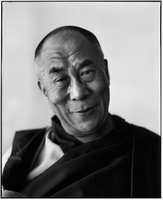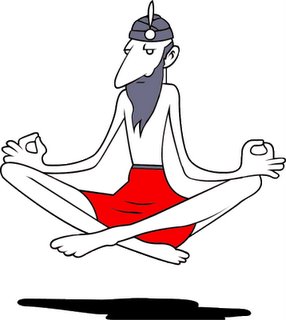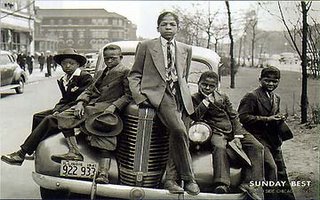
James: The following are segments from the chapter describing the enlightenment and liberation of the Buddha. It is from the book, "Old Path White Clouds." Often I feel that we aspirants make Buddhism too complicated. However, the following teachings on interdependence and non-self put it all into the right perspective. These major concepts, in my opinion, are the foundation to the path that we call "Buddhism":
He [The Buddha] smiled, and looked up at the pippala leaf imprinted against the blue sky, it's tail blowing back and forth as if calling him. Looking deeply at the leaf, he saw clearly the presence of the sun and stars -- without the sun, without light and warmth, the leaf could not exist. This was like this, because that was like that. He also saw in the leaf the presence of clouds -- without clouds there could be no rain, and withhout rain the leaf could not be. He saw the Earth, time, space, the mind -- all were present in the leaf. In fact, at that very moment, the entire universe existed in that leaf. The reality of the leaf was a wonderous miracle.
Though we ordinarly think that a leaf is born in the springtime, Gautama could see that it had been there for a long, long time in the sunlight, the clouds, the tree, and in himself. Seeing that the leaf had never been born, he could see that he too had never been born. Both the leaf and he himself had simply manifested -- they had never been born and were incapable of ever dying.
[...]
The leaf and the body were one. Neither possessed a seperate, permanent self. Neither could exist independently from the rest of the universe. Seeing the interdependent nature of all phenomena -- that all things are empty of a separate, isolated self. He realized that the key to liberation lay in these two principles of interdependence and non-self.
[...]
Illuminating the rivers of his body, feelings, perceptions, mental formations, and consciousness, Siddhartha now understood that impermanence and emptiness of self are the very conditions necessary for life. Without impermanence and emtiness of self, nothing could grow or develop.
[...]
The source of suffering is a false belief in permanence and the existence of separate selves. Seeing this, one understands that there is neither birth nor death, production nor destruction, one nor many, inner nor outer, large nor small, impure nor pure. All such concepts are false distinctions created by the intellect. If one penetrates into the empty nature of all things, one will transcend all mental barriers, and be liberated from the cycle of suffering.
-Peace to all beings-


















 Bhikkhu's blog
Bhikkhu's blog 




























